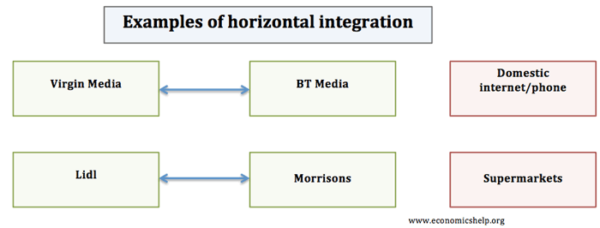Contents:
Further, companies are incentivized to keep a certain amount of cash in reserve should sudden circumstances such as a cash shortfall were to occur, or if an attractive acquisition opportunity appears. Public offerings, sales, and trades of U.S. securities must be registered and filed with the SEC’s state securities departments. Self Regulatory Organizations within the brokerage industry often take on regulatory positions as well.

Cabinet securities are listed under a major financial exchange, such as the NYSE, but are not actively traded. Held by an inactive investment crowd, they are more likely to be a bond than a stock. The „cabinet“ refers to the physical place where bond orders were historically stored off of the trading floor. The cabinets would typically hold limit orders, and the orders were kept on hand until they expired or were executed.
Among the most commonly traded derivatives are call options, which gain value if the underlying asset appreciates, and put options, which gain value when the underlying asset loses value. The main purpose of marketable securities is to have cash on hand that is still making the business a return. Marketable securities are a great way for businesses to be able to have a large amount of cash at hand as liquid assets. But they are also a great way to ensure that any cash you do have is still making a form of return. However, if a business merely keeps a large amount of cash on hand in its accounts, then there is no opportunity to earn interest. This means that the business will be consistently losing out on a potentially significant amount of income.
List of Most Common Examples of Marketable Securities
However, they are unlike a bond in the fact that the initial investment of the shareholder is never repaid. Preferred shareholders are granted a more senior claim on any funds if the company goes bankrupt. In exchange for this, preferred shareholders have to give up their voting rights. They have the benefit of fixed dividends that are paid before common stockholders. Some investors are more eager to grab this type of investment because of the short maturity periods, which tend to be less than a year. Converting or liquidating these investments into cash is much easier than is the case with longer-term securities.
Examples of SROs include the National Association of Securities Dealers , and theFinancial Industry Regulatory Authority . Securities and Exchange Commission regulates the public offer and sale of securities. Any expected profits or returns are due to the actions of a third party or promoter. Gordon Scott has been an active investor and technical analyst or 20+ years. IOS & Android Apps Send invoices, track time, manage payments, and more…from anywhere. She has 20+ years of experience covering personal finance, wealth management, and business news.
We also reference original research from other reputable publishers where appropriate. You can learn more about the standards we follow in producing accurate, unbiased content in oureditorial policy. „Marketable“ means that you can transfer the security to someone else and you can sell the security before it matures . To stay up to date on the latest investing news and trends, sign up for our free Investment U e-letter today.

Marketable debt securities can include corporate bonds—that is, bonds issued by another company—but they also need to have short maturity dates and should be actively traded to be considered liquid. Businesses that have conservative cash management policies tend to invest in short-term marketable securities. They avoid long-term or riskier securities, such as stocks and fixed-income securities with maturities longer than a year. Marketable securities are typically reported right under the cash and cash equivalents account on a company’s balance sheet in the current assets section. Bonds are the most common form of marketable debt security and are a useful source of capital to businesses that are looking to grow.
Because marketable assets are extremely liquid and regarded as safe investments, the return on these securities is modest. When hearing the phrase marketable securities not all of us think of stocks, bonds, or notes—even though they all classify to be called that. In this article, we’ll highlight many more exciting facts about marketable securities, including those that have the potential to change your business forever; read on to find out everything.
You can calculate the cash ratio of a company by taking the sum of a company’s cash and marketable securities value and dividing that by the company’s current liabilities. It indicates if the company can meet current financial obligations with the current assets marketable securities examples that the company has on hand. Marketable debt securities are also short-term investments that a company usually plans to sell or redeem within a year. They are bonds bought from another company that are available to be sold without restriction within that year.
Buying and Selling
This is achieved by applying one of the following two approaches consistently. Since they can be liquefied fast, they act as available current assets for most short-term company needs. However, they can still offer an additional interest rate that can generate a higher return than cash assets. Therefore, marketable securities enable companies to earn low-risk returns on their cash balances while remaining prepared for a sudden need for cash (i.e. “cushion”). Marketable securities are investments with short-term maturities that can be easily sold on public exchanges such as the Nasdaq and NYSE.
On its quarterly statement dated Apr. 21, 2022, Microsoft Corp. reported holding $92.2 billion of short-term investments on its balance sheet. The biggest component was U.S. government securities, which was $78.4 billion. Short-term investments, also known as marketable securities or temporary investments, are financial investments that can easily be converted to cash, typically within 5 years.
- In this manner, the business may generate returns on its cash rather than letting it stay idle.
- Common short-term investment vehicles include six-month CDs, money market accounts, high-yield savings accounts, government bonds, and Treasury bills.
- A debt security represents borrowed money that must be repaid, with terms that stipulate the size of the loan, interest rate, and maturity or renewal date.
- Regulation D is a regulation that allows smaller companies to sell securities without registering with the Securities and Exchange Commission.
An equity security represents ownership interest held by shareholders in an entity , realized in the form of shares of capital stock, which includes shares of both common and preferred stock. These guaranteed dividends and safety from insolvency make preferred shares a tantalizing investment opportunity. They are particularly appealing to anyone who thinks common stocks are too risky. In return for this investment, shareholders receive voting rights and dividends periodically. This is because the value of a company’s stock can wildly fluctuate.
About Treasury Marketable Securities
Letter securities are not registered with the SEC and cannot be sold publicly in the marketplace. Letter security—also known as restricted security, letter stock, or letter bond—is sold directly by the issuer to the investor. The term is derived from the SEC requirement for an „investment letter“ from the purchaser, stating that the purchase is for investment purposes and is not intended for resale.

Securities may also be held in the direct registration system, which records shares of stock in book-entry form. In other words, a transfer agent maintains the shares on the company’s behalf without the need for physical certificates. They are typically issued for a fixed term, at the end of which they can be redeemed by the issuer. Debt securities can be secured or unsecured, and, if secured, may be contractually prioritized over other unsecured, subordinated debt in the case of a bankruptcy. Equity securities do entitle the holder to some control of the company on a pro rata basis, via voting rights. In the case of bankruptcy, they share only in residual interest after all obligations have been paid out to creditors.
Apple Marketable Securities Example
This information is neither individualized nor a research report, and must not serve as the basis for any investment decision. All investments involve risk, including the possible loss of capital. Before making decisions with legal, tax, or accounting effects, you should consult appropriate professionals. Information is from sources deemed reliable on the date of publication, but Robinhood does not guarantee its accuracy. A company can also include here marketable securities with a holding period of over a year but that the company plans to liquidate within a year. Typically, a company discloses this action as a footnote on the balance sheet.
It is used in exchange for the use of funds that have been invested. Marketable equity securities can be common stock or preferred stock. They are the equity securities of a public company that is held by another corporation. Common short-term investment vehicles include six-month CDs, money market accounts, high-yield savings accounts, government bonds, and Treasury bills. Although short-term investments typically offer lower rates of return, they are highly liquid and give investors the flexibility to withdraw money quickly, if needed. When performing financial analysis, it’s important to know how to incorporate these types of short-term liquid investments.
Unlike long-term investments, which are designed to be bought and held for a period of at least a year, short-term investments are bought knowing they will be quickly sold. Examples of non-marketable securities are Government Account Series securities — unique debt-based funding mechanisms that the U.S. government uses to cover budget deficits. The government has several trust funds creating returns that aren’t needed right away , so the government creates GAS securities with that return to cover a deficit. The quick ratio is a calculation that measures a company’s ability to meet its short-term obligations with its most liquid assets. However, instead of holding on to all the cash in its coffers which presents no opportunity to earn interest, a business will invest a portion of the cash in short-term liquid securities.
Following an IPO, any newly issued stock, while still sold in the primary market, is referred to as a secondary offering. Sometimes companies sell stock in a combination of a public and private placement. As these securities are highly liquid, they can easily be converted into cash. There is no actual definition of what counts as a short amount of time, but it is generally accepted that anything less than a year is serviceable. High liquidity refers to the ability to resell the asset with there being many buyers available to purchase, thus reducing the amount of time to convert the assets into cash. Companies in a strong cash position will have a short-term investments account on their balance sheet.
So by putting the figures mentioned above in the formula will get the Net Amount for 100Rs face value commercial paper. ABC public limited company initiated a Commercial Paper in the market details mentioned below. Cash management is the process of managing cash inflows and outflows.
They also offer a chance to obtain a rate of return that would otherwise not be available. As such, marketable securities need to have a face value, or a value close to face value in a one-year span. There also are no restrictions on selling these securities in a year or less. As a standard modeling convention, marketable securities are often consolidated into the “Cash and Cash Equivalents” line item. The Securities Exchange Act of 1934 was created to govern securities transactions on the secondary market and ensure fairness and investor confidence. Certificated securities are those represented in physical, paper form.
Stocks in a company typically give the shareholder or individual investor voting rights and dividends. The value of the shares can fluctuate for companies based on the company’s performance and the overall https://1investing.in/ economy. In contrast, a non-marketable security is one that cannot be legally sold to the public. For example, shares in non-public companies can only be bought or sold in very limited circumstances.
Second, the management must intend to sell the security within a relatively short period, such as 12 months. Marketable debt securities, aka „short-term paper,“ that mature within a year or less, such as U.S. Treasury bills and commercial paper, also count as short-term investments. In accounting terms, marketable securities are assets that can be converted into cash within the year.